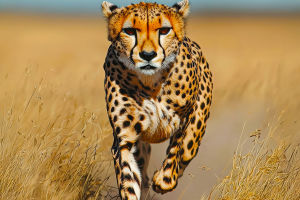You've probably heard that dogs can sniff out explosives or track missing people. But here's something even more incredible: some animals can detect diseases in humans—sometimes before medical tests pick them up.
It sounds like science fiction, but it's real, and it's changing the way we think about healthcare.
Dogs and Their Super Noses
Dogs are the stars when it comes to disease detection. Their sense of smell is up to 100,000 times more powerful than ours. That means they can pick up on tiny chemical changes in the body that signal illness.
Cancer detection – Trained dogs can identify certain cancers, like lung, or skin cancer, by smelling breath, or skin samples. Some studies show accuracy rates above 90%.
Diabetes support – Specially trained "alert dogs" can recognize when a diabetic person's blood sugar is dropping too low. They warn their owner before the person even feels symptoms, preventing dangerous situations.
Seizure prediction – While still being studied, some dogs appear to sense when their owners are about to have an epileptic seizure. They give warning signals—like pawing or barking—allowing the person to move to a safe place.
It's not magic; it's biology. Illness changes the body's scent, and dogs can pick up on these shifts that humans simply can't detect.
Rats: Unexpected Life-Savers
Rats may not be the first animals that come to mind when thinking about medicine, but they've proven to be surprisingly effective disease detectors.
Tuberculosis detection – In some programs, African giant pouched rats have been trained to sniff out tuberculosis in sputum samples. They can screen hundreds of samples in minutes, far faster than lab technicians.
Low cost, high impact – Rats are inexpensive to train and care for, making them valuable in places where advanced medical equipment isn't easily accessible.
While rats don't get the same spotlight as dogs, their efficiency and accuracy make them powerful allies in early diagnosis.
Bees and Their Sensitive Antennae
Believe it or not, bees can also help detect diseases. They use their antennae to sense chemical changes in the environment—and researchers have trained them to respond to the smell of illness.
Cancer research – Bees have been conditioned to extend their proboscis (a feeding tube) when exposed to the scent of certain cancers.
Fast learners – Bees can be trained in just a few hours, making them promising for rapid disease screening.
While still experimental, bees highlight how nature's sensitivity to smell can be repurposed for human health.
Horses and Seizure Awareness
Horses have an uncanny ability to pick up on subtle changes in human behavior and body chemistry. Some reports suggest therapy horses can sense the onset of seizures in people with epilepsy.
Their strong bond with humans and heightened sensitivity to changes in mood, posture, and scent make them natural partners in therapy and early warning systems. Though less common than dogs, horses are being studied for their potential in healthcare support.
Cats and Subtle Signals
Cats may not have the same reputation as dogs for medical assistance, but many cat owners have stories of their pets behaving strangely before a health crisis. Some cats reportedly detect low blood sugar episodes or stay close to owners before seizures.
While scientific research is still catching up, it's clear cats have a sensitivity to their humans' health and emotions. Their quiet companionship may also play a role in alerting families when something feels "off."
Why Animals Detect What Machines Miss
So, why are animals so good at this? It all comes down to biology.
Chemical signals – Diseases often produce volatile organic compounds (VOCs), tiny molecules that change the way a person smells.
Heightened senses – Animals like dogs and bees can detect these compounds at incredibly low levels—far beyond human or even many machine capabilities.
Natural instincts – Animals evolved to sense subtle changes in their surroundings for survival, which we can now tap into for medical purposes.
This doesn't mean animals will replace medical tests, but they can complement them—acting as an early warning system.
The Future of Animal-Assisted Detection
Researchers are working on ways to combine animal skills with technology. For example, once a dog identifies a disease-related scent, scientists analyze the specific molecules involved. These findings can then be used to develop advanced sensors that mimic animal noses.
The future might include handheld devices inspired by dogs' sense of smell, making screening for cancer or infections faster and more accessible. Until then, animals remain incredible allies in the fight against disease.
Final Thought: Nature's Hidden Doctors
It's humbling to realize that animals can notice life-threatening conditions before we do. Whether it's a dog pawing at its owner to signal low blood sugar, or a rat rapidly screening for tuberculosis, these creatures remind us of the hidden intelligence in the natural world.
Sometimes the best doctors don't carry stethoscopes—they wag their tails, twitch their whiskers, or buzz their wings. And maybe that's a lesson worth paying attention to.


